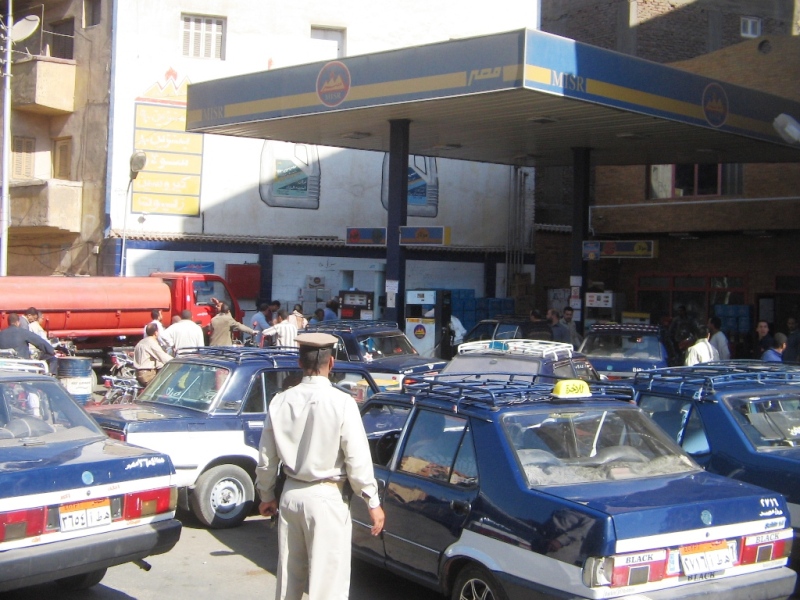
A gasoline shortage in Egypt has led to long queues at fuel stations and raised suspicions among drivers that it may be a prelude to a cut in subsidies, despite official reassurances that there is no plan to hike prices.
The streets of Cairo and other cities have been blocked by queues of cars, often snaking around the block, since shortages started becoming apparent on Saturday.
Many drivers have reached the pumps only to find fuel had run out, stoking tensions in a nation already reeling from months of political unrest and leaving many people frustrated that the uprising that ousted Hosni Mubarak in February last year has not yielded the economic dividend they expected.
"I have toured 15 gasoline stations looking for fuel," said Mahmoud Rabie, a merchant who travelled from his hometown in the Nile Delta governorate of Sharqiya, north of Cairo, to the capital searching for gasoline.
The shortages have prompted speculation that the government, which has asked the International Monetary Fund to help plug a gaping budget deficit, may be using a tactic to prepare people to pay more for fuel and rein in subsidies that weigh on state coffers. The government has said it has no such plan.
Some have speculated that it shows how dire Egypt's finances are as its foreign currency reserves have tumbled. Egypt exports crude but also imports some refined products to meet its needs.
Oil Deputy Minister Mahmoud Nazim said on Monday the government had no intention of raising gasoline prices and said that supplies to local markets had been increased.
"Companies providing petroleum products to stations have begun increasing their gasoline supplies to 5.21 million litres per day, 33 percent higher than usual quantities," Nazim said in an Oil Ministry statement.
But he did not explain the reason for the shortage.
Some analysts say that, whatever the original cause, it may have been exacerbated by hoarding for fear of a possible flare-up during the 25 January anniversary of the start of the anti-Mubarak uprising. Some fear renewed violence during protests by those opposed to the generals now in charge.
Gasoline station managers are puzzled.
"There is barely any fuel across the country. Quantities supplied to us are very low. We don't even know why," said Howaida al-Sayid, deputy manager at a Cairo Exxon Mobil station.
Egypt's economy is in tatters after a series of protests against the ruling military council turned violent, hammering investment and tourism.
Any jump in gasoline prices would put upward pressure on inflation, which is accelerating and was one of the main drivers of the 25 January uprising. Inflation in the 12 months to December climbed to 9.5 percent from 9.1 percent in November.
Several fuel station employees in Cairo said their stations were receiving only a third of their regular quotas, with queues piling up as early as 6 am and supplies running out by noon.
"I told you to fill up my entire tank, and it's only half full," one customer shouted at a worker at one packed station.
Egypt, which subsidizes fuel, has about a fifth of its 80 million people living on US$2 a day. The cheapest and lowest grade fuel, 80 Octane, is sold for just 1 Egyptian pound (17 US cents) a litre, well below its market value.
"I have been searching in vain for gasoline since last night, and now that I have found a station that actually sells gasoline, I will fill up my entire tank," said Alaa al-Sheikh, manager of a garments factory.
"This shortage seems to either be a prelude by the authorities to hike prices or an attempt to prevent people from taking to the streets again on 25 January."
Mounting public anger over what many see as the military council's mismanagement of the transition is seen as possibly sparking another flare-up of protests on the revolt anniversary.
"I believe this is just one problem created by the authorities to try and divert attention away from the 25 January anniversary," Sheikh said. "They are still following the exact same steps of the previous regime."
Analysts say the most pressing economic threat is the slide in Egypt's foreign reserves, which tumbled from around $36 billion at the end of 2010 to about $18 billion at the end of 2011.




